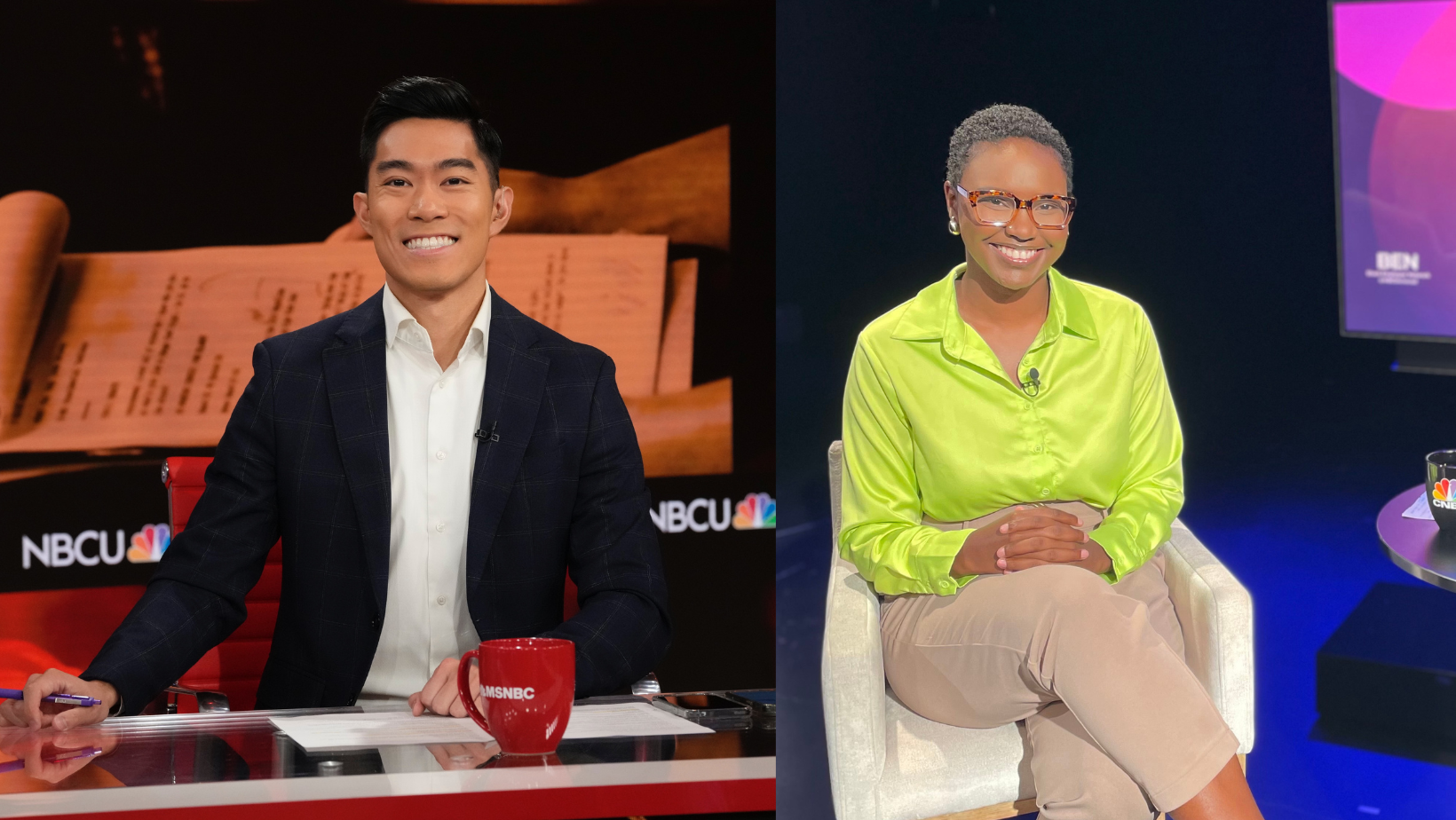
In her business-casual dress and an itinerary in hand, Ashton Jackson was filled with jitters walking into her first journalism convention. She was also excited. As a first-generation college graduate who had attended a historically Black university, she knew firsthand that young people don’t always have the funds to attend large-scale conferences. And here she was at the National Association of Black Journalists convention as an NBCU Academy embed, an opportunity that enabled her to build professional connections with industry leaders.
“I’ve overcome so many obstacles and so many circumstances. And the cards that I was dealt — I [thought I] should not be here,” Jackson said. However, she pushed forward. “I’ve made it this far.”
During some downtime at the convention, Jackson volunteered at the salad bar alongside an NBC colleague who helps lead the company’s Black Employee Network. The two began talking, and they kept in touch after the convention. Fast-forward a year, and Jackson is now a reporter for CNBC’s Make It. That same connection recently invited her to interview top executives for the employee network, something she had mentioned wanting to do when they first chatted.
“It’s all about just growing connections and making sure that you don’t have transactional interactions with people,” Jackson said.
With summer journalism conventions in full swing, Jackson and other NBCU employees share their best practices for maintaining professional connections made in conference workshops, expo booths and networking events.
Add a personal anecdote from your conversation
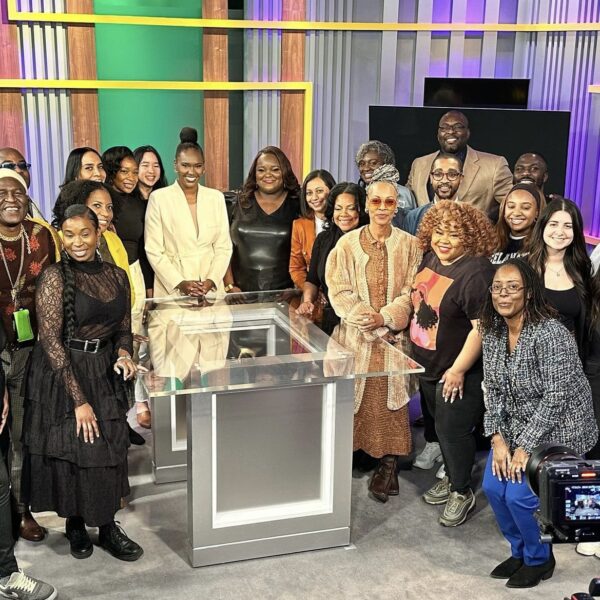
So you’ve made a connection or three at a convention. The next few workdays is a good time to send a follow-up email. To make a lasting impression, add a personalized touch, said Tara Morgan, NBC’s principal recruiter for early career campus programs. She said this will greatly increase your chance of getting a response.
“Maybe you talked about where that person was from, or a trip they were going on this summer,” Morgan said. “Include some information on what you’ve been up to lately.” She also suggests adding that you would love to learn more about them, so the conversation feels two-way.
Jackson credits another connection she maintained from NABJ to her landing a role with CNBC. She said she had a 20-minute conversation with an NBC employee about her goals and then followed up with him whenever she could. When it was time to apply to her current role at CNBC, she met with the same employee, who helped prepare her for the interview. “It all worked out, and I still talk to him to this day,” she said.
Suggest a coffee chat
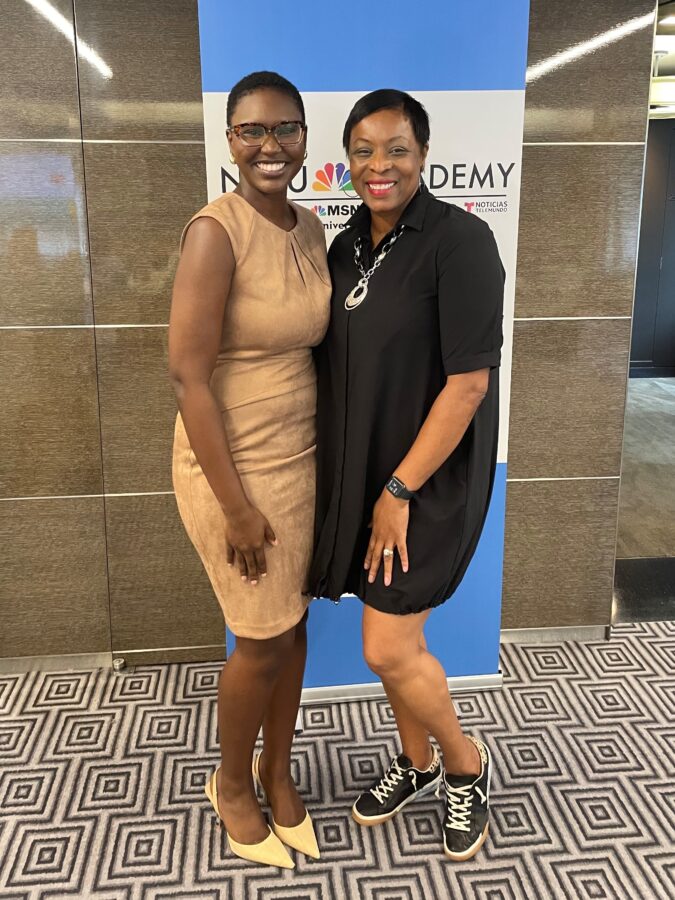
Morgan says when you’re sending that initial email or message after a conference, a great way to keep the connection going is by asking to chat over a quick phone call, Zoom or even a coffee if you’re nearby. If you meet in person, she says, “eye contact is crucial in communication. It shows the person you are speaking with that you’re engaged and listening.”
Jackson says she loves a coffee chat and recommends the interaction be organic. “You don’t even have to talk about work the first time you meet someone,” she said. Just by reaching out, “they’re going to remember you.”
NBC News business and data reporter Brian Cheung said as a former intern, he’ll always have time for a coffee chat with those who now hold the role he did a decade ago. “Passing it on is really important,” he said.
Start from a place of authenticity
“Being authentic is so important,” Morgan said. “It will help you create those enriched professional connections that will last a long time. Think of networking as relationship building instead of being transactional.”
For Jackson, being a genuine friend can go a long way, “so that when you actually do need someone for something, it doesn’t feel like you’re just talking to me because you need me to do something for you,” she said.
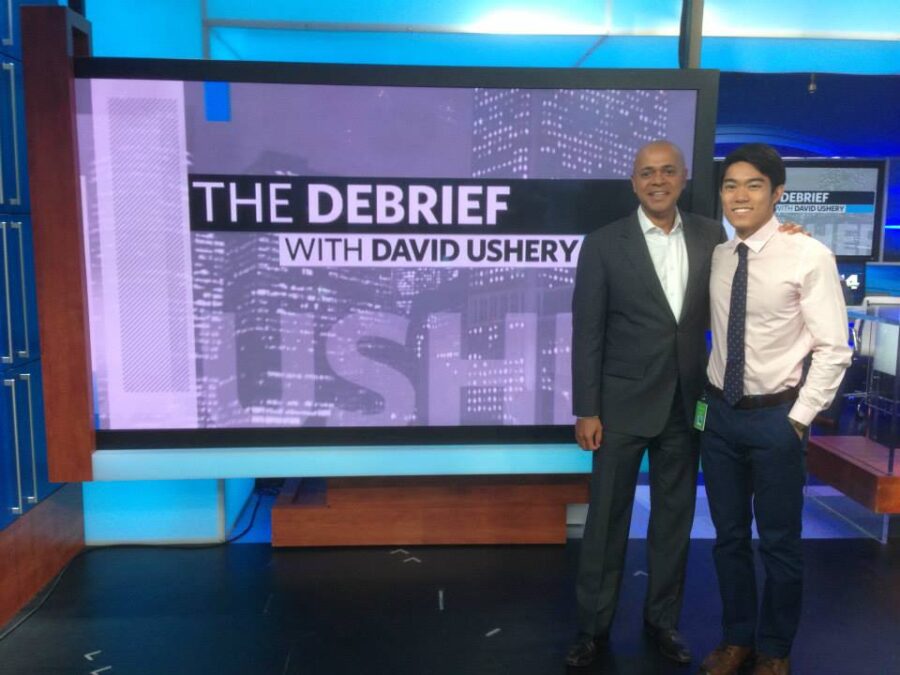
Cheung says creating natural connections helps take the pressure off. “It doesn’t have to be a formal mentorship, where you meet on the first Monday of every month.” Meet when you can or when it makes sense.
This advice also applies to keeping in contact with former colleagues. After Cheung interned for anchor David Ushery at NBC New York in 2013, they kept in touch. When Cheung got his job at NBC News last year, he wanted to email Ushery a clip of his on-air appearance to say thank you and “I’m here because of you.” To Cheung’s surprise, Ushery beat him to it. Cheung received an email from Ushery saying, “Looking good man!” with a photo of Cheung on the news.
For Cheung, it was a special moment. “We’re both on air, and we’re both in the same ecosystem, and we support each other,” he said. “And for that mentor-to-mentee connection to come back full circle, that’s an awesome feeling.”
Keep in touch on LinkedIn
Morgan says connecting on LinkedIn can be helpful, but timing is everything. “Don’t wait too long!” she said. “What you don’t want to happen is to connect with someone at a convention, and then the first time they’re hearing from you is eight months later when you’re coming up on graduation and looking for a job.”
Jackson says if your professional connections have not responded to your email, try “liking” or commenting on a post they have made, or send them a LinkedIn message as a friendly reminder.
Set realistic expectations
“You may only get responses from a few of the connections you’ve made – and that’s OK,” said Morgan. “Have realistic expectations of the time your connection can give you. Don’t come straight out of the gate asking for an hour-long video call or lunch.”
Jackson says she reminds herself to give other people grace, and to give that same grace to herself. “Just don’t give up on yourself so easily. Don’t count yourself out,” she said. “If something is meant for you, it will be for you. Continue to do the work and it’ll pay off.”
When Cheung would first reach out to professional connections, he said, many would not respond. Not all meetings need to be 15 minutes. Some check-ins can be friendly birthday emails or remembering small personal things, he said, adding “You’re just talking with a human being at the end of the day.”
Remember today’s leaders were once interns, too
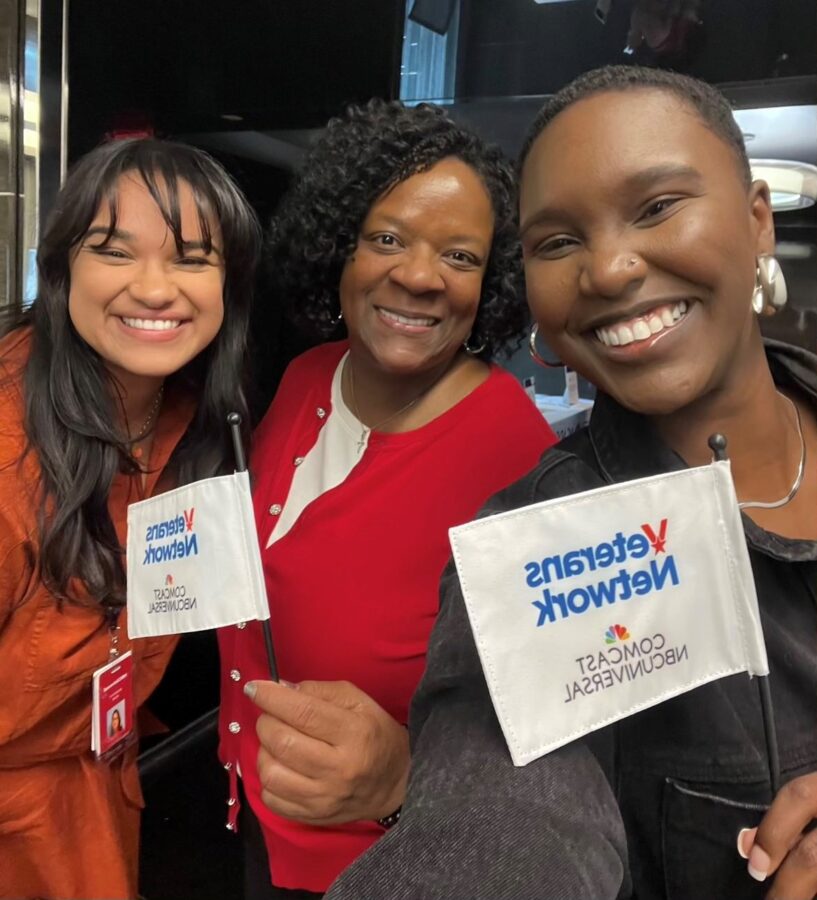
Morgan says to remember that everyone you reach out to was once in your shoes, and many of them are eager to help.
Cheung says if it were not for Ushery’s support, he “maybe would have just walked away from the industry. I think that having people like that, who are decades in to show you you can do this, is the only reason why I was able to get here.”
Jackson says that being one of the few Black women on her team, she’s familiar with imposter syndrome and self-doubt. She says seeing herself represented gives her strength, “just seeing [MSNBC President] Rashida Jones, Yvette Miley [NBC News Group’s executive vice president of Diversity, Equity and Inclusion], [“TODAY” co-host] Sheinelle Jones, all of these just powerful women, women of color, who have defied the odds, who are in the doors, who are doing the things that I want to do,” Jackson said, “now I know I could do it. I’m empowered.”


